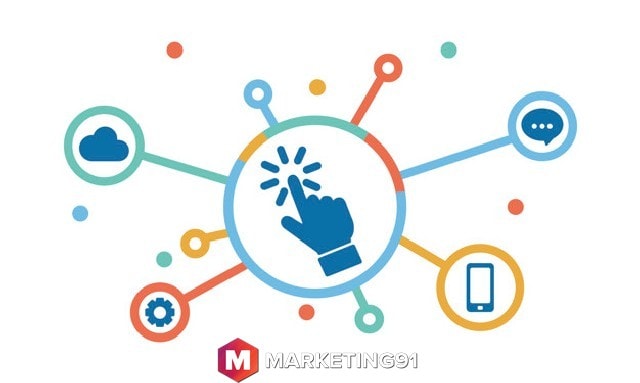Have you heard much about millennials and are curious to know who they are? Then, this post will take you deep into the world of millennials and guide you in understanding the causes of millennials. So, let us get started right away-
Table of Contents
Introduction to the world of Millennials
Millennials are also known as Generation Y or Gen Y.
They are a demographic group following Generation X (Gen X). The word “millennial” has recently come into the limelight. Often, people confuse the first generation of this term with the upcoming generation.
The widely accepted definition of millennials is the group of people who were born between 1981 and 1996. This young age group has started ruling the world and dominating various industries. They are politically aware, technologically advanced, and socially acceptable.
The characteristics of millennials differ depending on the region. They also vary based on the socio-economic conditions of the area. However, there is one common characteristic of all millennials, irrespective of the area in which they reside.
Millennials stand out from the crowd owing to their general “coming of age” attitude, supported by the ease of access to information due to digitization. Millennials are also responsible for changing the mindset of whole generation in our society. They are accountable for introducing modernism in society.
The Personality Traits of a Millennial
- Millennials are technologically advanced; owing to this, they have also been the center of most marketing efforts.
- They are also multi-taskers. They can manage multiple tasks at the same time without making any errors.
- The generation excels at out-of-the box thinking and is known for its creative problem-solving skills. They constantly endeavor to come up with something different and new for the world to see. They tend to exhaust their creative faculties from time to time.
- They are careful before opting for a service or buying products. They aren’t gullible and easily convincing. They look for advice and research before going for something.
- They are also socially conscious.
- Millennials also hold high expectations of their employers.
- They are not afraid to question and voice their opinions. The generations before were subdued and restricted. Millennials understood the importance of expressing their views.
- Millennials are ambitious, confident, and driven towards their ambitions. They are practical and have high aspirations in life.
Traits that make Millennials good employees
1. Curiosity
Generation Y is generally curious. They want to gain new skills and have a broad perspective. They also work hard to improve as employees. They want to produce something special.
Several companies have developed career-oriented development programs for millennials to help them grow. The PepsiCo initiative gives employees essential experiences to help them change for the future. Several companies offer internships for young thinkers.
These internships teach children how a company works, let them brainstorm, and acclimate them to corporate life. Companies also benefit from internships. They acquire new ideas and perspectives from millennials. Due to inexperience, millennials are willing to work longer hours and lower wages. Companies and large firms benefit the most.
Millennials only want to work for a short time to get a promotion. Companies with innovative programs offering fresh, professional development routes will likely attract millennials.
2. Individuality
All millennials have distinct personalities. Previously, unconventionality and distinctiveness were ignored. Today, the world is increasing, and market competition is rising. Such fierce rivalry takes creativity and innovation. This is what millennials provide.
They are regularly mocked at work for believing they are different. Older workers believe millennials have excessive expectations of life. This is justified because older generations were raised conventionally and restrictively.
Modern companies now manage millennials individually. A corporation must make employees feel comfortable and hear their views. Companies have realized that millennials’ individualism makes them a strong workforce. They have learned that today’s competitive environment requires creative and unique approaches. Every organization must stand out.
Millennials have varied professional goals, desires, and personalities, which company leaders must understand. Millennials demand professional and personal progress while investing in the firm.
Millennials and companies are interdependent for growth and success.
3. Social Awareness
Community service is popular with millennials. They think more than economic awareness is needed. Ideal citizens should be socially conscious and accountable. Salesforce has helped them focus on social concerns and give back. All Salesforce workers are encouraged to volunteer for charity.
They allow it during work hours. Some corporations also require employees to give or volunteer for people experiencing poverty.
Most millennials worry about societal issues like climate warming and equality. They have protested uneven wages, gender discrimination, homophobia, etc. A corporation can boost employee motivation by helping them adjust. A corporation should secure a relationship between beneficial social change and success.
They provide an environment where millennials can work, learn, and flourish.
4. Financial Stability
Millennials prioritize financial security over wealth. They prefer moderation and security to poverty and luxury.
Due to the Great Recession aftereffects. Gen Y is greatly affected. Due to this and college debt, many millennials prefer to forgo expensive products and services to save money.
This realistic approach helps individuals survive and become financially independent and self-sufficient. Millennials will work harder for organizations that offer incentives like tuition help.
5. Innovations in Technology
To be more specific, millennials are digital natives. They value tech. Because technology touches practically every aspect of their lives, they were born with phones, the internet, and computers. It is no surprise millennials love technology.
Internet development and digitization have made millennials tech-savvy. Millennials watch 5–10 hours online daily.
Technology is always available. Their upbringing was more electronic. Online community participation is typical. Join online forums and socialize with other generation.
This also attracts millennials to tech firms. A recent survey indicated millennials prefer Amazon, Tesla, and Apple to Levi’s, Chanel, and Ford. Millennials like familiar workplaces.
They know IT and internet communities. This is why millennials choose tech businesses like these.
Technology-driven companies can attract more millennials.
6. Feedback
Millennials like to learn and adapt. A survey found that millennials want regular work feedback. They find it effective since they can focus on improving rather than being praised. In this ever-changing world, constructive criticism is crucial, they say.
Organizations can improve performance by encouraging managers to meet with teams weekly or biweekly. Because of their curiosity, millennials desire to improve themselves and flourish professionally.
They consider feedback crucial to professional progress. Constant feedback accelerates their change. This benefits the organization since millennials deliver more.
7. Collaboration
Millennials prefer teamwork to solo work. An innovative approach to entrepreneurship. They handle the company individually and with a partner. Due to this, corporations are designing their offices with open concepts.
Allowing millennial workers to meet and collaborate with peers in various teams can increase company performance. This enormously unites the company. It also prevents workplace disagreements. Open-concept meeting areas create a transparent workplace.
New ideas emerge after a significant merger. Again, this benefits firms. Influential cooperation helps companies and employees grow.
8. Competitive
Competitiveness motivates Gen Y to succeed professionally. The generation enjoys goal-setting and achievement. They continually strive to outperform office coworkers. While this is true, millennials love teamwork and growth. Healthy competition is best for millennial workforces.
They distinguish between competition and teamwork. Thus, these workers collaborate without issue. Gen Y is motivated by self-improvement.
A competitive world encourages millennials to think and be inventive. The competition encourages creativity and inventiveness. This benefits companies and ensures progress.
9. Multi-taskers
The millennial generation multitasks well and can perform several responsibilities. They prefer a hectic lifestyle. Due to their addiction to social media, individuals need to be more focused. If this distraction is reduced, millennials may apply their practical multitasking skills. Millennials also like quick living. They hate stagnation and slow growth.
They can create daily and weekly goals for their young staff. Set weekly goals to guide millennials. This guidance helps them live methodically.
Businesses can attract young talent with an exciting workplace and growth possibilities. Thus, transparent and dynamic environments benefit organizations and people.
10. Connected
Millennials are tech-savvy and connected. They enjoy online community participation. They know social media well and can navigate it. Social media heavily influence millennials. A company must use social media to promote itself and be interested. Social media helps companies connect with millennials.
Companies can engage audiences and potential customers on social media. They can also discuss company-related or intriguing topics with their followers. Organizations can monitor social trends and adjust their workplaces. Millennials can also help companies improve their social media operations.
Social media networks are a powerful marketing tool for every organization. The corporation and its employees may create an effective marketing strategy together.
11. Work and life balance
The generation likes to keep a balance between their professional and personal lives. It is a common understanding that millennials are workaholics. But this is a misconception. Millennials tend to prioritize their personal and professional lives equally. Unlike other generations, Gen Y is unwilling to compromise on this factor. While the generation is also hard-working like their previous generations, they prefer flexible work environments.
Companies that value a work-life balance and help their employees maintain the same attract the generation. Moreover, businesses have the attitude that as long as deadlines are met, the time-in and time-out of an employee are up to them. In that case, a work-from-home allowance also keeps the millennial workforce happy and satisfied.
These days, companies want people to meet the required targets rather than come to the office daily. This flexible work atmosphere is ideal for the most educated generation, millennials.
What do Millennials want in a job?
Understanding the primary motivators for Millennials in the workplace might help firms attract and retain this demographic. Here’s a summarized overview based on multiple research findings:
1. Immediate Feedback and Accomplishment Recognition
Millennials thrive on receiving immediate feedback and acknowledgment. They perform best when they sense their efforts are recognized and appreciated.
- Practical Application: Set up a recognition program that recognizes significant achievements. For example, a software startup may recognize contributions with a “Developer of the Month” award based on inventive code solutions.
2. Emphasis on Work-Life Harmony
A rigorous, all-work-no-play mentality is a turnoff for Millennials. They choose a balance that meets both their career and personal goals.
- Practical Application: Encourage company-sponsored retreats and wellness initiatives. For example, providing an ‘adventure day off’ for outdoor activities could benefit significantly.
3. Teamwork and Connectivity
For Millennials, a collaborative environment is not just desired but also required. They prioritize developing professional ties and collaborating with their peers.
- Practical Application: Encourage a team-oriented culture by redesigning the office layout to incorporate communal spaces for brainstorming, such as lounge rooms with smart boards.
4. Genuine Communication
Authenticity is high on Millennials’ priority list. They have been overloaded with advertising and can spot inauthentic messaging a mile away, preferring straightforward, honest connections.
- Practical Application: Revise corporate communication using straight-talking messaging. Instead of saying “leverage synergies,” simply say “work together effectively.”
5. Transparent Practices
This generation values transparency in their professional environment. They want to know about company operations and trust their leaders and peers to be honest.
- Practical Application: Share company metrics, challenges, and victories openly. For instance, a monthly transparent report on company performance can build credibility and trust.
6. Career Growth and Opportunity
Millennials seeking employment fulfillment must have progression opportunities. They seek clear paths to advance in their careers.
- Practical Application: Outline clear career progression routes and consider establishing a talent rotation program, allowing employees to experience diverse roles within the company like one might rotate crops for sustainable farming.
7. Commitment to Diversity
Diversity is not just a slogan for Millennials but a fundamental virtue. A company’s steadfast dedication to having a balanced and diverse workforce speaks words.
- Practical Application: Discuss the actionable steps the company is taking towards enhancing diversity rather than just presenting it as a goal. Sharing initiatives like scholarship programs for underrepresented groups in the industry can demonstrate commitment.
Tips for highlighting Millennial characteristics
When creating job application materials, it is critical to highlight the generational characteristics employers find appealing. Here’s a quick method for accomplishing precisely that:
On your resume:
Showcase instances where your adaptability, innovation, and technological savvy transformed difficult situations into success tales. Remember to include measurable outcomes to show how you will offer value.
In the cover letter:
Expand on your introduction by connecting your distinctive millennial characteristics to the company’s demands and demonstrating how they fulfill the employment requirements. Demonstrate how your primary abilities will provide actual results for the potential employer.
During the interview:
When answering common questions, emphasize the millennial qualities that are most relevant to the position. Assume you are interested in a career in tech sales; explain how your collaborative personality and forward-thinking mindset resulted in a plan that increased your team’s conversion rates last quarter.
Conclusion
In conclusion, millennials need a workplace environment that is stimulating, fun, and innovative.
They get attracted to a transparent work atmosphere and require more interaction with the company. As companies grow, millennials also need to grow individually in their careers. They also stand out for their tech-savvy nature.
Multiple studies show that millennials earn less than the previous generation at the same age. Another research shows that almost 50 percent of millennials are more willing to purchase goods from brands that further support a cause. This holds even if it costs a bit more.
As discussed, work is critical to millennials, but it is equally essential to maintain a healthy balance between their personal and professional lives. While every generation comes with its own challenges, they also have positive characteristics that eventually help society develop and improve.
Millennials are much more accepting of diversity and even care genuinely for the same. They are more accepting, liberal, and tolerant of other people’s opinions. In terms of workplaces, they like transparency and prefer straightforward and relatable communication methods. They are team-oriented and enjoy collaborating on projects with their friends and colleagues.
Millennials are also focused on doing what is right and need to feel on the right track. They appreciate recognition for their work and want to contribute to the business for which they work. They are always in the transition state and seek constructive criticism occasionally to help them grow.
For them, it is essential to be socially and politically aware, apart from being economically conscious.
Have you understood everything about the millennials? Do you still have any doubts about the role of millennials in today’s business management? Feel free to ask us in the comments below.
Frequently asked questions
What is Gen Z?
Gen Z refers to the group of people who were born between 1995 and 2010. However, Gen Z includes those born in slightly different years.
Is Gen Z in the workforce?
Gen Z refers to people born from 1995 to 2010. This means they are between 13 and 28 years old now. Most of Gen Z are working, while the youngest members will start working in a few years.
What is Gen Alpha?
Gen Alpha is the name for the group of people born up to 2025. When everyone in Gen Alpha is born, they could be the biggest group of people ever. Most of these kids have parents who are millennials.
What are the other generations called?
Different experts have their ways of grouping young people into generations, using birth years as a guide. If your birth year is near the beginning or end of these groups, figuring out which one you fit into can take effort. Here are the generations as some see them:
- Gen Alpha: Birth years from 2000 to 2025
- Gen Z: Birth years from 1995 to 2010
- Millennials: Birth years from 1980 to 1995
- Gen X: Birth years from 1965 to 1980
- Baby Boomers: Birth years from 1945 to 1965
- Silent Generation: Birth years from 1925 to 1945
- Greatest Generation: Birth years from 1900 to 1925
Liked this post? Check out the complete series on Marketing











